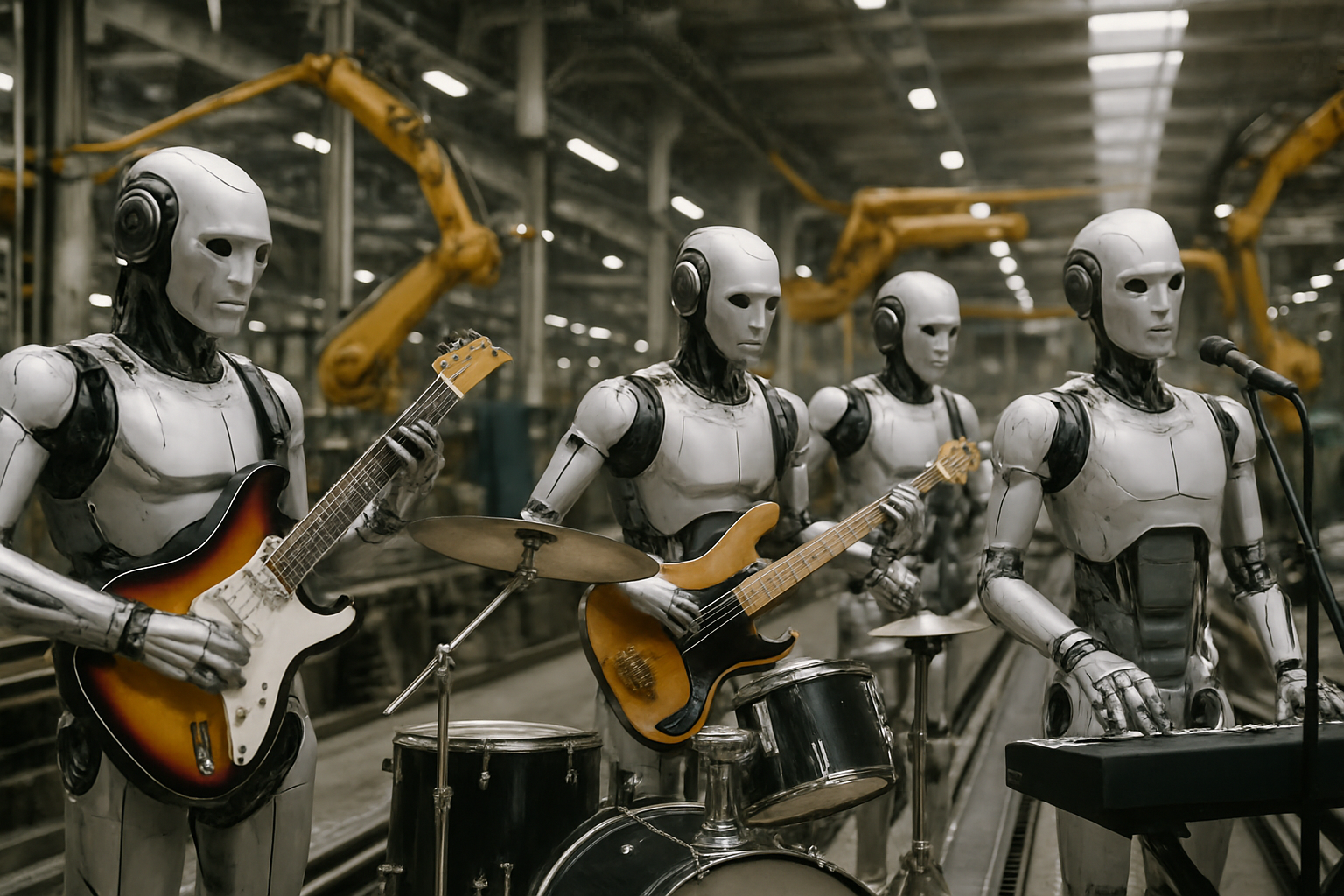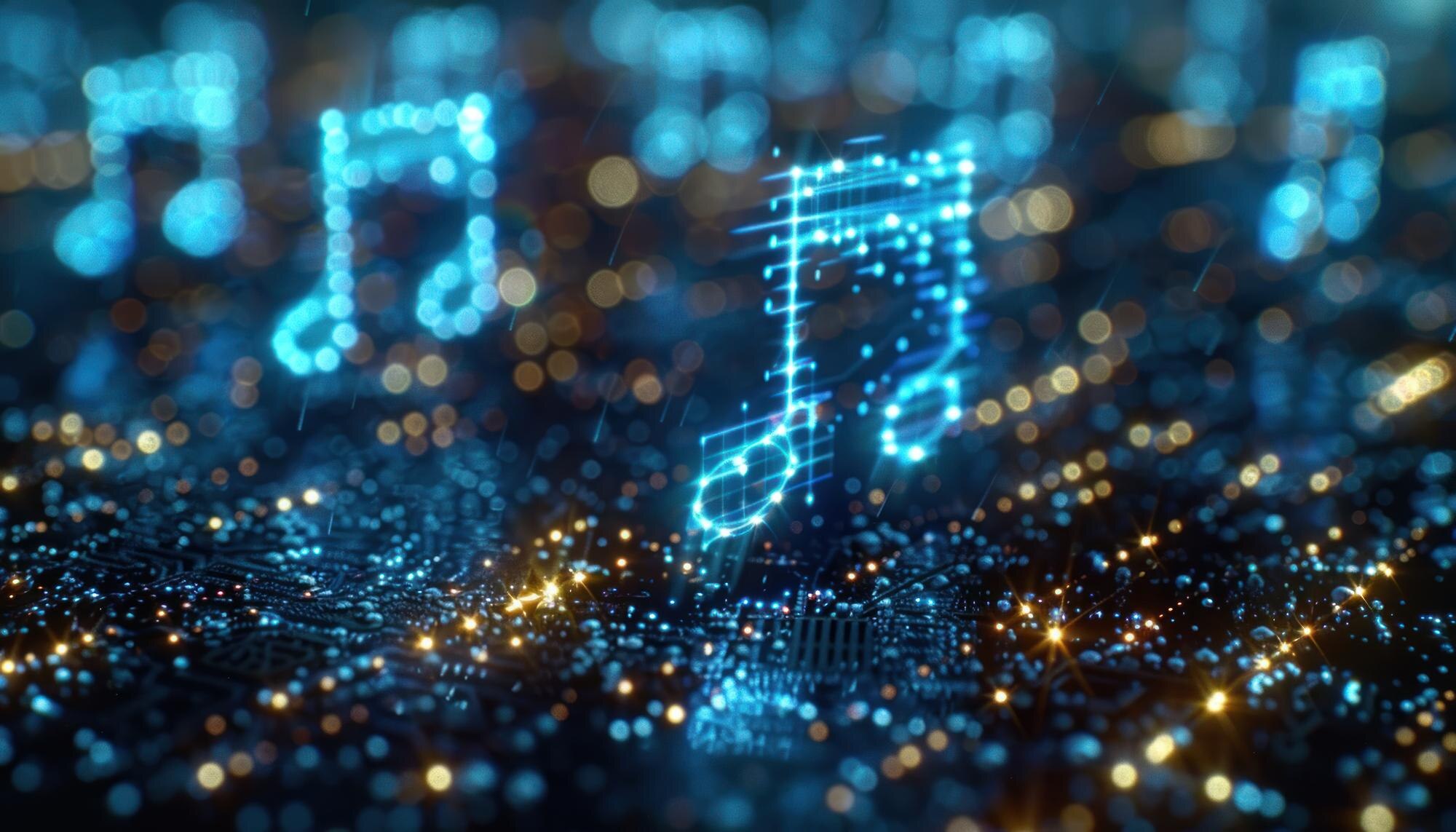The AI Revolution in Music Production: Transforming Sounds and Shaping the Industry
AI in music production is shaking up the way sounds come to life—and no one feels it more than independent musicians and major streaming platforms like Spotify and Apple Music. The rules for creating, sharing, and discovering music are shifting fast, pushing artists to rethink their craft and reach. This post breaks down the latest moves in artificial intelligence in music and what they mean for your next track. Learn more about the impact of streaming platforms on the music industry.
AI and Music Production

The intersection of AI and music production has opened new avenues for creativity and innovation. As you discover these opportunities, you'll find AI reshaping the studio landscape.
AI-Driven Sound Creation
AI is now a remarkably powerful tool for crafting unique sounds. Imagine composing a melody where an AI not only suggests chord progressions but also generates entirely new instruments. Consequently, this technology offers you fresh sonic possibilities. Moreover, some AI programs can analyze existing music and create new compositions in similar styles. Thus, this means more time spent on creating and less on technical grunt work.
Furthermore, using AI, sound creation goes beyond traditional boundaries. For example, OpenAI's MuseNet can compose 4-minute musical pieces with ten different instruments, thus offering a broad palette of sound. If you're looking to explore these advancements further, check out this article on AI music production.
Machine Learning for Mixing
In addition, machine learning is changing the mixing game by streamlining complex processes. Algorithms learn from existing tracks to suggest mixing settings that suit the song's style. As a result, you get high-quality mixes faster, freeing up time for creativity.
Moreover, AI tools like LANDR offer instant mastering services. They analyze your track and adjust the mix to meet industry standards. With machine learning, you can consequently achieve professional results without needing years of experience. But don't just take my word for it—many artists are already leveraging these tools for success.
Impact on Streaming Platforms

AI isn't just revolutionizing music creation; it's also transforming how we consume music on streaming platforms. As these platforms evolve, so do the opportunities for artists to connect with listeners.
Spotify and AI Integration
Spotify uses AI to curate playlists and recommend music, tailoring experiences to individual users. Through algorithms, Spotify analyzes your listening habits and predicts what you might enjoy next. This personalized approach keeps you engaged and helps you discover new artists effortlessly.
AI also assists in identifying trending tracks, ensuring you're always up to date with the latest hits. For more insights on how Spotify uses AI, explore this discussion on AI music.
Apple Music's AI Advancements
Apple Music employs AI for both user experiences and artist support. AI-driven tools help artists refine their music and reach the right audience. By analyzing listener data, Apple Music suggests tracks that match user preferences, enhancing discoverability.
Apple's recent enhancements focus on delivering high-fidelity sound through AI technology. This commitment to quality makes it a preferred platform for discerning listeners. If you're curious about Apple's innovations, read this analysis on AI impacts.
Influence on Independent Musicians

AI is a game-changer for independent musicians, offering tools that were once exclusive to major studios. With AI, you can produce professional music regardless of your setup.
AI Tools for Indie Artists
Independent artists are leveraging AI to handle tasks like mastering and promotion. Platforms like Amper Music allow you to create music with AI assistance, even if you're not a trained musician. These tools lower the barrier to entry, enabling more artists to share their work.
AI can also help with marketing by analyzing trends and suggesting optimal release strategies. By understanding your audience better, you can tailor your efforts for maximum impact.
Creative Opportunities with AI
AI opens up new creative possibilities by encouraging experimentation. You're no longer confined to traditional music-making methods. Instead, AI invites you to explore uncharted territories of sound.
For example, AI can generate novel chord progressions or unique soundscapes. These tools provide a fresh canvas for your artistic vision, allowing you to think outside the box. The potential is vast, and the only limit is your imagination. Learn more about AI's role in music creativity here.
🎵✨
In summary, AI is revolutionizing music production by enhancing creativity and improving accessibility. Whether you're a listener, a producer, or an independent artist, AI offers tools and opportunities that were unimaginable just a few years ago. As the technology evolves, so will the music landscape, promising exciting developments for all involved.





